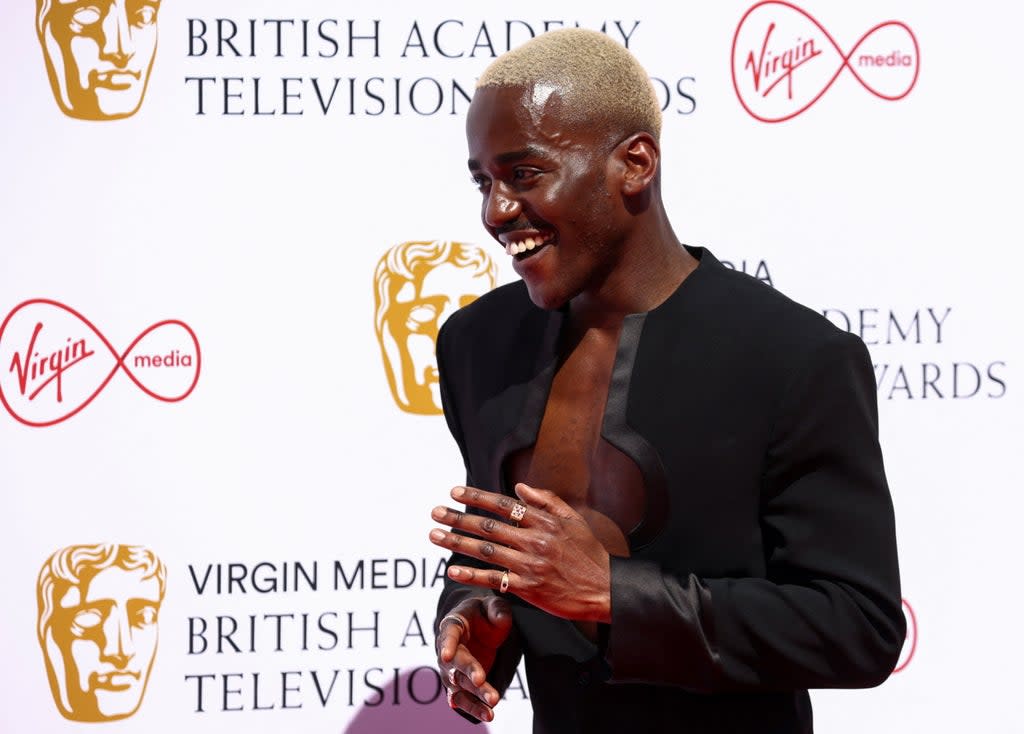Voices: Spare me the white feminism, Ncuti Gatwa deserves to be Doctor Who star

Can I be honest? I’m tired of the representation Olympics that follow every announcement of either the next James Bond, Doctor Who or some other well-known TV character.
I’m tired of the “a Black (insert character name here) doesn’t represent me” takes. They’re laced with racism. And of course, it’s OK to criticise, and to be disappointed because you think a bad actor got given a role, but I don’t think there’s much room for debate about Ncuti Gatwa’s talent.
Best known for his refreshing portrayal of Eric Effiong in Netflix comedy-drama Sex Education, he walks the line between light humour and more emotional scenes as a support system for his best friend Otis. He also won a Bafta Scotland Award for Best Actor in Television and three Bafta Television Award nominations for Best Male Comedy Performance for this role. I loved his character and remember thinking: I hope he gets cast in some other big roles, he deserves it.
The racist takes aren’t just insulting and sad, they also don’t make any sense. The Doctor is an alien who has the ability to take on different identities as they regenerate. They could be a woman, a man, a non-binary person or a five-year-old if that’s what the Doctor Who writers wanted for the character. That’s why we’ve seen the Doctor played by both women and men during the show’s 26 years, from Jodie Whittaker to David Tennant.
When I heard the news, I was really happy for Ncuti. I loved him in Sex Education and I can’t wait to see what he brings to his new role in Doctor Who. As a Black woman, representation and diversity in TV and film are, of course, important to me. And one thing I didn’t want to do was take this moment away from Ncuti by saying “this is great but I wish the new Doctor had been a Black woman”. (Jo Martin made a guest appearance as a fugitive Doctor back in 2020, but Ncuti will become the first Black actor to play the titular role full-time.)
Diversity on screen has a long way to go, but this isn’t the right time to make those types of comments. Different identities being pitted against each other doesn’t help anyone, yet I saw disappointed comments because the Doctor is no longer a white woman.
Why do people assume white women are the pinnacle of representation? It’s white feminism – an exclusionary form of feminism that only reinforces the power of white people – summarised. A lot of people will feel seen by the casting of Ncuti and I think that’s a beautiful thing.
Today, Ncuti said: “It feels amazing, this role is an institution and it’s so iconic and means so much to so many people, including myself. It makes everyone feel seen. I’m very grateful to have the baton handed over and I’m going to try and do my best.”
To keep up to speed with all the latest opinions and comment, sign up to our free weekly Voices Dispatches newsletter by clicking here
Representation in casting isn’t the be-all and end-all. We won’t solve all inequality issues with the casting of a Black man as the Doctor, or a Black James Bond, or a trans Harry Potter. In fact, a report published last year found that the representation of Black, Asian and minority ethnic people actually went backwards both on and off screen, which is embarrassing.
BAME representation behind the scenes was at 11.8 per cent in 2020, down from what it was in 2019 (12.3 per cent), and below the UK workforce estimate of 13 per cent. It also takes a lot of nuance to portray characters of different identities well, and in order for it not to feel like a tick-box exercise. And of course, there needs to be representation not just in casting but also structurally, from production assistants to producers.
Nevertheless, this is a big moment in TV history that I think should be celebrated and acknowledged. I will definitely be watching and I’m glad the show is having a revamp – it will take me back to when I was 10 and would watch Doctor Who with excitement and anticipation. I can’t wait to see where Ncuti’s talent takes him.

 Yahoo News
Yahoo News 
